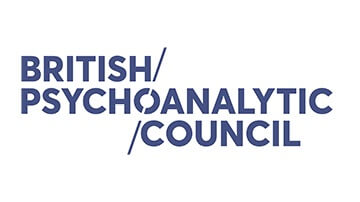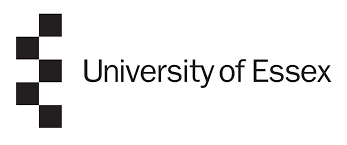
Psychodynamic psychotherapy (M58L, Leeds)
Discover our new, consolidated Master’s degree and clinical training in psychodynamic psychotherapy
This four-year, part-time course will equip you with the knowledge, skills and experience needed to practise as a psychodynamic or forensic psychotherapist in a wide range of settings.
This course consolidates our popular Foundations of psychodynamic psychotherapy (D58L, Leeds) training and our qualifying courses in Inter-cultural psychodynamic psychotherapy (D59I) and Forensic psychodynamic psychotherapy (D59F) at the Portman Clinic. Read more about this consolidation (FAQs).
Students may choose to graduate after three years (and successful completion of the dissertation) with a Master’s degree, or complete the full four years of training and also be eligible to practise as a psychodynamic or forensic psychotherapist.
This course will be validated by the University of Essex, and accredited by the British Psychoanalytic Council (BPC).
This course will also be delivered in London as a daytime version (M58) and via evening classes (BM58).
Please note: The deadline for applications to this course has been provisionally extended until Wednesday 31 July 2024.
Please note: you may also see the M58L course referred to as PCMALM002 in communications from our application system.
About this course
This innovative course will support you in developing the theoretical understanding and clinical experience needed to practise effectively as a psychodynamic or forensic psychotherapist.
In the first three years of the training, students will be working towards a Master’s degree, subject to validation by the University of Essex. Upon completion of the MA, students will have the opportunity to continue onto a further year of clinical training, subject to accreditation by the British Psychoanalytic Council (BPC).
Lectures covering key psychoanalytic concepts will be delivered throughout the first two years of the course – first examining Freudian theory and the historical context of psychoanalysis, before moving onto the works of Melanie Klein, Donald Winnicott and Wilfred Bion. In the third and fourth years, students will be offered a range of supplementary lectures, covering advanced concepts and featuring guest speakers, to support their work towards clinical qualification. Understanding of psychoanalytic theory will be further supported through interactive theory seminars throughout all four years of the course. Reading materials will be thoughtfully selected to address a broad spectrum of perspectives, ideas and interpretations – promoting a holistic grasp of the subject matter. Experiential groups will run throughout the first two years of the training, allowing students to develop their understanding of unconscious processes and group dynamics.
Students will undertake regular clinical placements throughout the course, usually for half a day per week – gaining real-world experience in a variety of settings, including the NHS. In the first year, interactive workshops will prepare students for clinical practice, while clinical seminars and case study seminars support ongoing learning and reflection throughout the course. The third-year dissertation offers the opportunity to engage in an original research project with a clinical focus.
Students are required to undertake weekly therapy with a BPC-registered psychoanalytic psychotherapist or psychoanalyst (not a psychodynamic psychotherapist) for the duration of the course. There is also a requirement to be supervised by a BPC-registered psychoanalytic psychotherapist or psychoanalyst at various points in the training, and to participate in clinical supervision groups – all ensuring a well-rounded education in psychoanalytic practice.
Who is this course for?
This training is for mental health professionals working across a wide range of sectors – you might be a psychiatrist, psychologist, social worker or nurse, or be in another mental health role in the NHS, voluntary or private sector.
The training is also suitable for those who do not have a clinical background in mental health, but who have completed some psychoanalytically informed introductory training and a psychiatric placement prior to applying.
Course details
In order to undertake this course, we ask that you:
- have a good honours degree, or have completed our Introduction to counselling and psychotherapy (D12/ED12) course;
- hold a professional qualification in mental health or have at least six months direct experience of working, volunteering or shadowing in a psychiatric setting;
- are established in therapy with a BPC-registered psychoanalytic psychotherapist or psychoanalyst (not a psychodynamic psychotherapist) prior to starting the course, or ideally by the time you apply – please note that you cannot start your clinical work with a patient until you are settled in your personal therapy for at least six months.
Personal suitability for the work is also an important factor that will be assessed at interview.
Please note: If you are considering transferring to this course from another institution, please make this clear on your personal statement.
Home (2024/25)
£7,600 (Years 1-3)
£5,000 (Year 4)
Please note that supervision is not included in the course fees for Home students, and must be arranged separately at an additional cost. Further guidance will be provided prior to the start of the academic year.
International (2024/25)
£12,500 (Years 1-3)
£8,300 (Year 4)
You will be charged course fees for each year of your course. If your course is longer than one year, the fees that you will be charged after the first year will be subject to an annual inflationary increase. This will either be an increase of 3% or the Consumer Price Inflation as on 1 September of that year – whichever is the greater. At its discretion, the Trust may determine a figure between these two rates. Please refer to our Student Fees & Refund Policy for further information.
Financial support may be available to help you fund your studies at the Tavistock and Portman NHS Foundation Trust.
Assessment
Regular written submissions, including essays and clinical portfolios, constitute a crucial aspect of the assessment process overseen by course staff. Students also engage in online quizzes that evaluate their knowledge of key psychoanalytic concepts, and receive supervision and progression reports. These reports play a vital role in monitoring and ensuring the student’s steady advancement in the programme, offering a comprehensive review of their progress and the support provided. Students are also given the opportunity to engage in meaningful discussion with their tutors, fostering an environment in which they can meaningfully reflect on their academic journey. Assessment of clinical work involves feedback from dedicated supervisors and clinical seminar leaders. Their insights are pivotal in determining the student’s proficiency in the clinical component of the course, providing valuable guidance for successful completion. This multifaceted evaluation process ensures a holistic and supportive approach to the student’s academic and clinical development.
To achieve the Master’s degree, students must complete and submit a 10,000-word dissertation, engaging in an original research project with a clinical focus.
All assessments are undertaken by course staff, verified by the course lead as well as other staff and then ratified by the assessment and progression board of the University of Essex.
Attendance
This course can be studied on a part-time basis.
It is anticipated that face-to-face teaching for M58L will take place all day on Wednesdays.
You will need to set aside additional time each week for your supervision group, personal therapy sessions and placements, as well as watching pre-recorded lectures, reading course material and working on written assignments.
Graduates from this course will be eligible to practice as a psychodynamic or forensic psychotherapist, working in a wide variety of settings, including in charities, the NHS and private practice, or in forensic outpatient settings, prisons and probation services.
Why study with us?
We are committed to providing a first-class education in contemporary psychodynamic psychotherapy. Throughout your training, you will gain insights into the latest methods and approaches that are shaping the field and develop a comprehensive understanding of psychoanalytic principles – ensuring that you are prepared for the challenges of contemporary clinical practice.
One of the advantages of studying with us is our unique blend of academic excellence and practical application. Our faculty members are actively involved in cutting-edge research, contributing to the advancement of psychoanalytic theories and methodologies. This means you will be learning from those at the forefront of the field – gaining insights that go beyond traditional textbooks.
Course facilitators
Validations and accreditations
This course will be validated by the University of Essex.

This course will be accredited by the British Psychoanalytic Council.
Apply now
Start your application for this course.
Recommended courses
Explore courses to study beforehand
-
 Trust certificate
Trust certificate 
Introduction to counselling and psychotherapy (D12)
-
 Trust certificate
Trust certificate 
Introduction to counselling and psychotherapy (ED12, online)
-
 Trust certificate
Trust certificate 
Psychodynamic reflective practice in mental health (D65)

